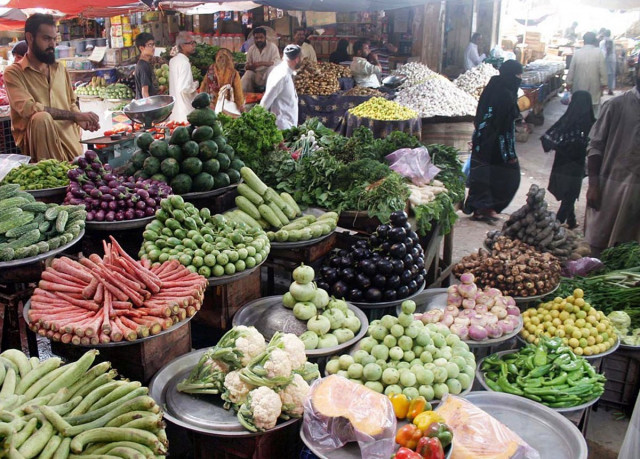Time to sign Charter of Economy!
It is high time all political parties reach consensus on economic policy roadmap

There are a few macro indicators that are used (actually misused) by the politicians depending on which side of the floor they are occupying in the house.
For instance, increasing petrol prices is the source of all evils if you are in the opposition but makes absolute economic sense if you are sitting on treasury benches.
Ironically, all the parties in the Pakistan Democratic Movement (PDM), which were badly criticising all the tough decisions of the PTI government a few weeks ago from the opposition benches, never realised that they have to taste their own medicine so soon as they assume power and it is getting bitter and uglier with the passage of time.
Listening to the statements made by Miftah Ismail during the discussion at the Atlantic Council, it is very obvious that the old policies, which were fiercely opposed by him in the recent past including the independence of the State Bank, will not only continue but he might have to double down on some austerity measures.
In fact, taking cue from his candid talk in the backdrop of IMF meetings, hoarding of petroleum products, especially diesel, has reached its peak at a time when farmers need it the most.
The clarification later by him on a TV show that the price hike will not be imminent did not reverse the damage done so far as farmers are still queuing at fuel stations in search of diesel to salvage their agricultural produce before it is worthless.
The false breakout in the stock market on the first day of the government when the KSE-100 index breached the 46k level has fizzled out faster than expected as there was no participation of the shrewd institutional investors, who remained sidelined and let individual investors do all the heavy lifting.
The same goes for the free fall of Pakistani rupee, which has resumed its rout after a few days of pause and since the government has now completely backtracked on the tough stance it took in the past about the independence of the State Bank, they cannot pull this lever to support the rupee against the dollar as they did in the past.
If all the above was not overwhelming enough for the current policymakers, then the recent treasury bill auction on April 27 should have rung the alarm bells all across the Q-Block as the six-month cut-off rate hit 15% for the first time in decades.
This points to further belt-tightening by the monetary policy committee (MPC) whose recent hawkish move has already spooked markets and businesses alike.
Also, the prospect of further rate hike will make it costlier for the government, which is looking ahead, to do some commercial borrowing in order to create breathing space in the upcoming budget.
As anticipated in my last article “Economic, financial cost of political chaos”, there is nothing one party or government can do to tackle the issues affecting the economy, especially when many of them are exogenous and structural in nature.
However, this chaotic transition has made the situation worse as the new government is blaming the past government for all the mess while the past government is now on the street blaming the sitting government for conspiring against them.
Amid all these hither and thither between “Naya” and “Purana” in Pakistan, the common person on the street emerges as the biggest loser in the whole fiasco as he continues to suffer from fuel shortages, high inflation, and now the menace of unannounced load-shedding in the holy month of Ramazan.
It is high time that all the political parties arrive at a consensus to formulate a “Charter of Economy”, detailing a long policy roadmap that should be supported by all the parties irrespective of which side of the floor they are sitting on.
There should not be politics around the key economic policy decisions and leg-pulling.
In principle, the democratically elected government should be allowed to progress uninterrupted on the agreed roadmap without any compromise and interference.
Unless there is such long-term commitment and undeterred support from all the power corridors, we will be crawling back to the IMF for bailout time and again and even continue knocking on the doors of some friendly countries whose friendship surely has some limits.
The writer is a financial market enthusiast and is attached to Pakistan’s stocks, commodities and emerging technology
Published in The Express Tribune, May 2nd, 2022.
Like Business on Facebook, follow @TribuneBiz on Twitter to stay informed and join in the conversation.



















COMMENTS
Comments are moderated and generally will be posted if they are on-topic and not abusive.
For more information, please see our Comments FAQ